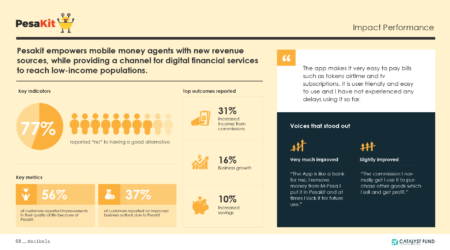Risky business: how to de-risk your fintech startup before it’s too late
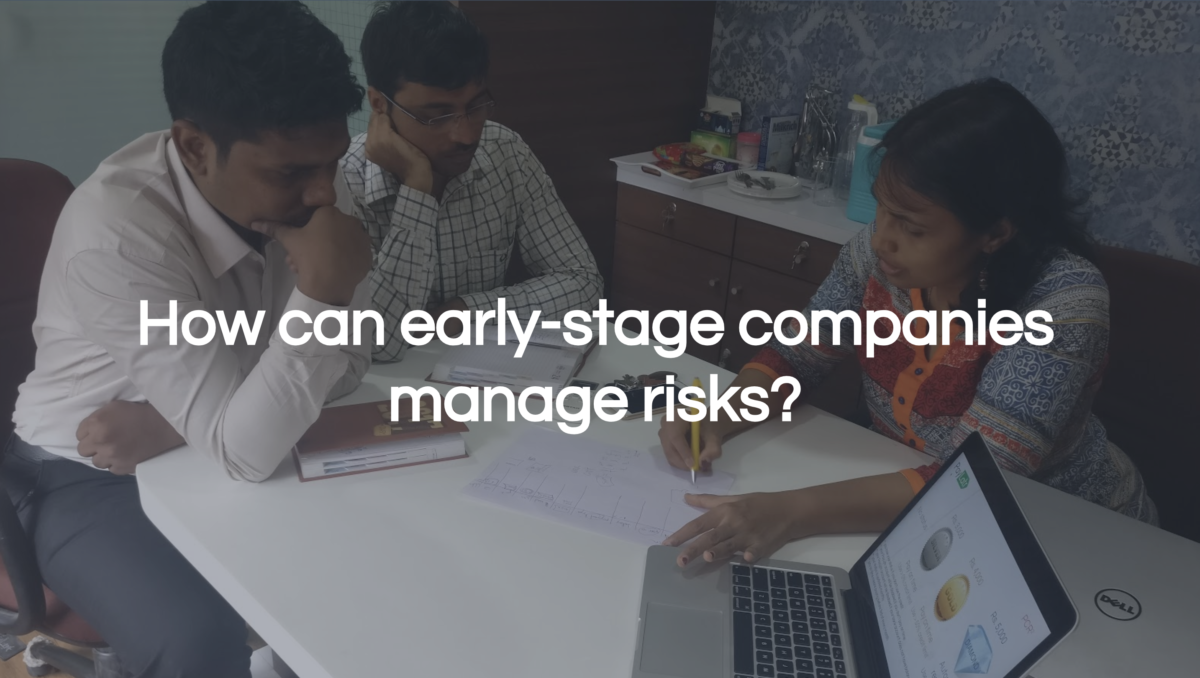
Co-written by Elizabeth Davidson
If you’re a fintech entrepreneur, it’s probably not news to you that failure is more likely than success.
After all, an estimated 70% of tech startups fail, typically within the first two years after their first round of financing. Click to Tweet
Catalyst Fund has been working with inclusive fintech startups, a field that presents unique challenges for entrepreneurs, over the past two years. In many countries, it is a sector that presents more regulatory constraints, limitations as to how companies can handle information, and stringent operational and capital requirements.
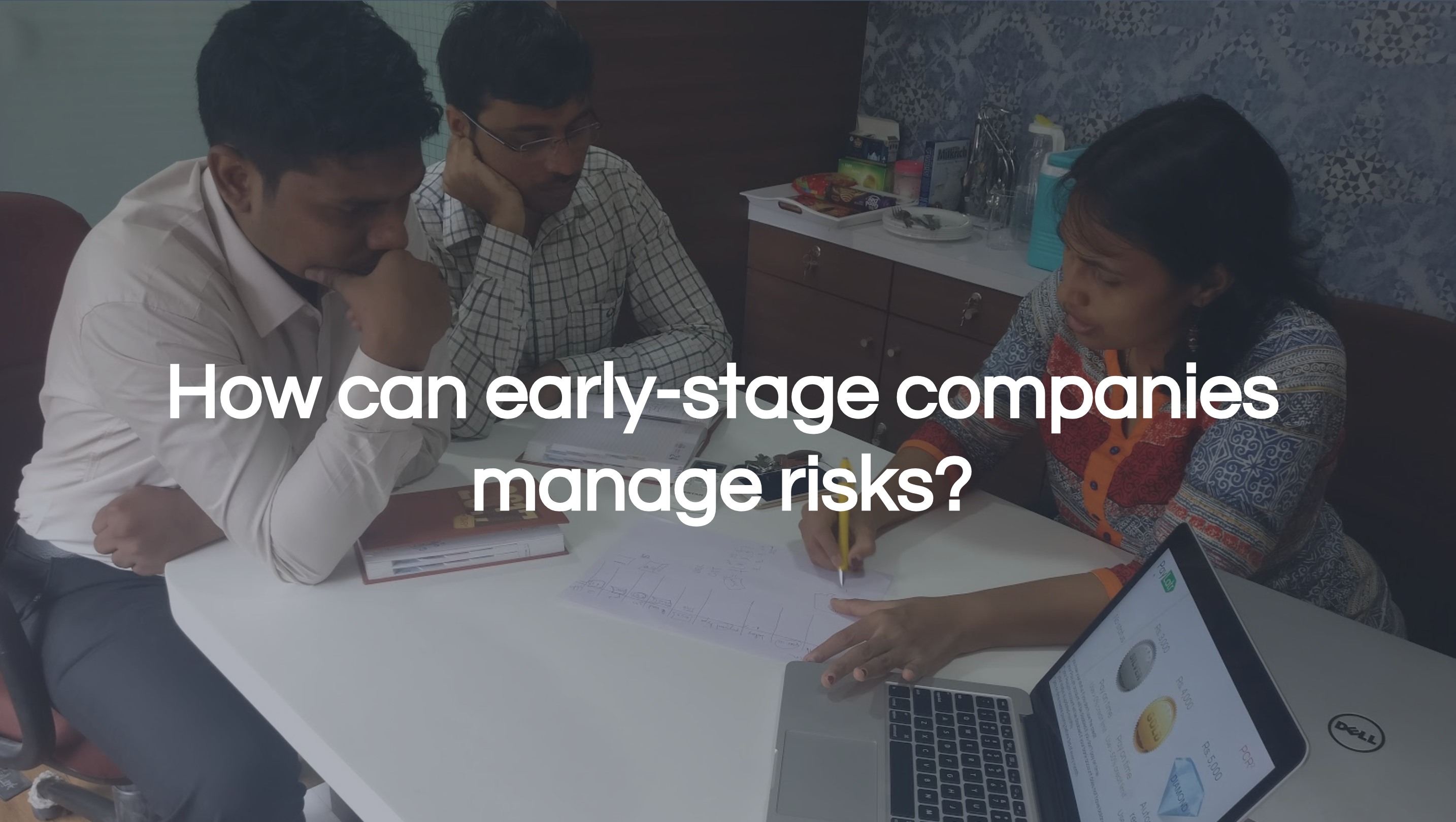
Different startups, common risk challenges
Despite working with a wide variety of fintech startups across different geographies and sectors, we have seen some themes emerge on the most common risks that can pose a threat to the success of the business at the early stage. All startups mention they lack the financial and human capital they need to grow their businesses. “Finding funding is a huge burden. The average startup CEO spends 70% of his time fundraising, which remains the number one challenge faced by local startups,” says Yoann Berno of Flowigo.
Finding people with the right skill sets who are willing to give up more secure job alternatives is also big barrier, yet fundamental to raising capital and ensuring smooth execution. “The biggest challenge is getting the team with the right skill set at first, especially when you’re a young company and don’t have a system or protocol for hiring and then you start growing rapidly,” says Destacame’s Jorge Camus. “It then gets challenging to manage the team, train them and really build a culture that allows you to get to your goals.”
Over 70% of our fintech entrepreneurs also noted that not getting to product-market fit is a major challenge they face. They felt they did not have a full understanding of their customers needs to build strong value propositions. Additionally, 40% mentioned they faced technology risks, including lack of accessible data to refine their products, and 33% pointed to specific ecosystem dynamics that might threaten their business ability to scale.
Want to mitigate risks? Start early!
Early identification of key risks can help fintech startups invest in the business support they need early on before a risk takes down the business. These risks can scare off investors, who want to ensure that entrepreneurs understand the key challenges they face. Instead of waiting for entrepreneurs to identify key risks, early stage investors can work with startups to tackle these risks before or in conjunction with their investment.
Catalyst Fund has taken just this approach. By working with our entrepreneurs to identify risks, we can tailor technical assistance to solve these risks so that investors are more confident in the future success of the business.
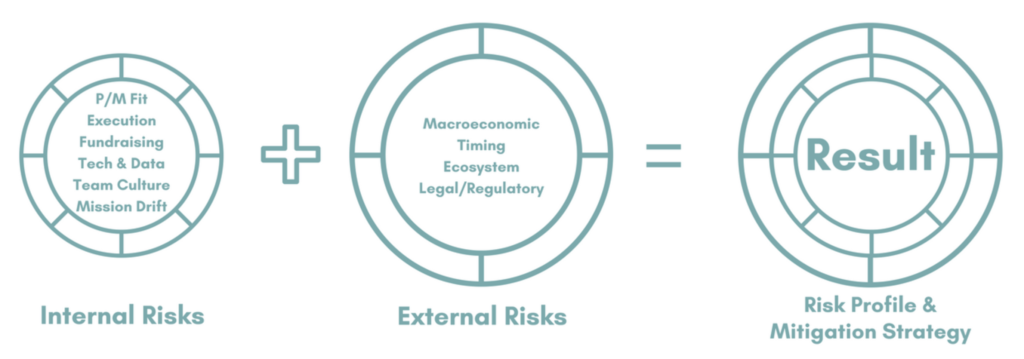
Taking an honest look at their own key risks can be difficult for entrepreneurs, who may be too deep in the weeds to step back and look at the bigger picture. This is why the Catalyst Fund developed a risk diagnostic to help startup leaders get a better grasp on their challenges, and understand those within or outside of their control. The tool offers a checklist of possible mitigation strategies for the entrepreneur. Here are a few strategies we applied through our technical assistance engagements:
Understand your customer to offer strong value propositions
For Miguel Duhalt at Comunidad 4uno, that meant better understanding what his customers valued most about its product in order to focus on high value customers and tailor their offering. When we first met 4Uno, a financial services distribution platform offering insurance, health benefits and payments services for domestic workers in Mexico, they struggled with picking the right product offering for the right customer segment. After working with them on customer research, we helped them segment their customer base to refine their product offering and marketing strategy. Since then, they tailored product packages for insurance to specific client profiles and also offer salary payment services via an app, which resulted in a growth spurt.
Figuring out the right way to engage with customers is also a challenge for entrepreneurs in these markets and a big risk to the company’s ability to take off. How can a mobile-based startup communicate its value proposition clearly and consistently with a rural customer base when only 50% own phones and only 20% are literate? WorldCover, a platform providing insurance to low-income farmers around the world, used a marketing MVP, or minimal viable product, composed of simple and clear images to cater to the illiterate majority of potential customers. They tested various solutions, from SMS systems to a “microphone man” going to communities to play a recorded message and frequent community meetings. Community meetings, with 95% attendance rates, allowed WorldCover to maintain a human touch with customers. Farmers trusted WorldCover more after more face-to-face interactions because “an impostor wouldn’t show up at your house every week after taking our premium money,” said WorldCover’s CEO, Chris Sheehan.
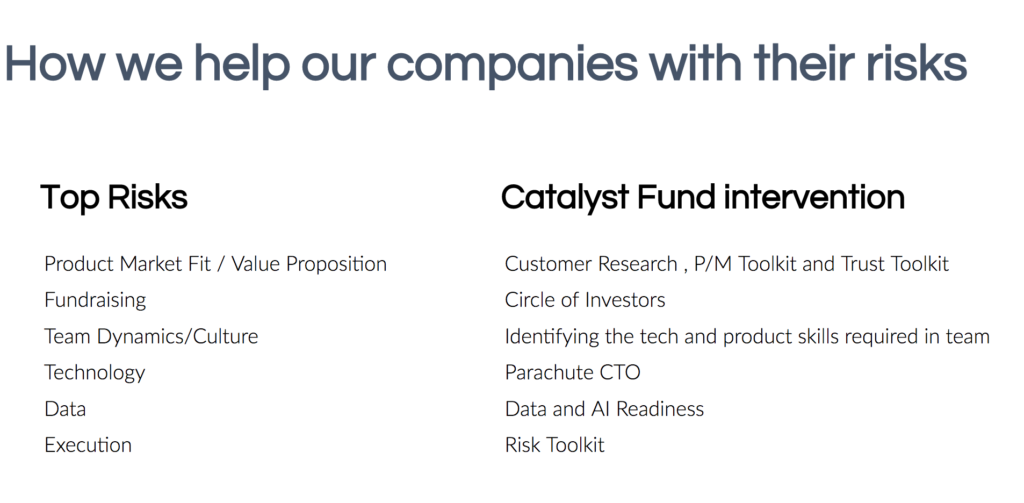
Build a product vision and roadmap that meets your business needs
On the other hand, PayGo, a pay-as-you-go gas solution in Kenya, realized they were struggling with technology risks. They needed to integrate with a scalable payments solution, track key gas system indicators, and find tools to measure, monitor, and run their field sales team and customer service, yet they did not have the tech skills in the team build the necessary back-end software technology. We worked on designing their product architecture and built a new version of the app they are still using today. “The architecture we built with Catalyst still holds,” says Nick Quintong, PayGo’s CEO. “It was fundamental for a team that doesn’t have software expertise to bring someone in to show us how it can be done with off-the-shelf software modules.” Without these key technology investments early on, PayGo would not be poised for the growth it’s enjoying today.
In Colombia, we helped Escala, a savings fund for corporate employees and their children, with similar challenges. Initially, technology was holding Escala back and preventing them from reaching more clients who could benefit from their services. We worked with Escala to identify and integrate the right tech processes to match their stage and helped them avoid spending important resources on expensive and unnecessary CRM tools.
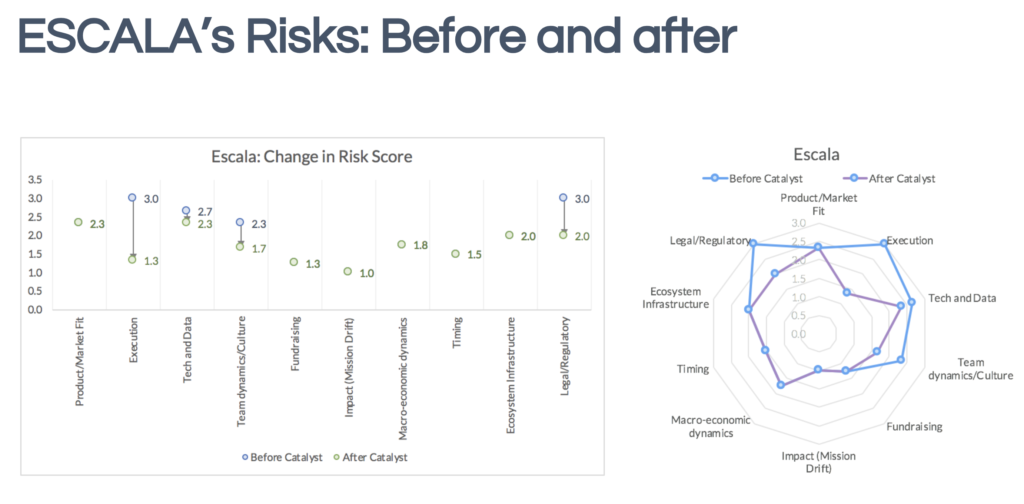
“We believe ESCALA Educación’s story proves that a model like CF is very valuable to get a company investment-ready.”
Tahira Dosani, co-managing director of Accion Venture Lab
Escala used their new tech structure to more successfully manage their two sets of clients — companies and their employees — and to raise a seed round, which included members of Catalyst Fund’s Investors Committee such as Accion Venture Lab. “We believe ESCALA Educación’s story proves that a model like CF is very valuable to get a company investment-ready,” said Tahira Dosani, co-managing director of Accion Venture Lab, at the SOCAP conference this year. “ESCALA combines a strong management team and exciting customer acquisition and engagement strategies” says Vikas Raj, co-managing director of Accion Venture Lab.
Get the timing right
Unfortunately, not all risks can be mitigated. For Flowigo CEO Yoann Berno, “timing is everything.” Flowigo, a SaaS company seeking to enhance operations of pay-as-you-go product distributors in Africa, faced timing risks that ultimately backfired. Its markets lacked the client density necessary from them to scale, and key infrastructure issues like connectivity posed an ongoing challenge. SaaS companies like Flowigo need dense networks of businesses to flourish, but in Africa, industries that count more than a few dozen major players are rare. Scaling a SaaS business while addressing 10 to 15 customers is a hard sell. Ultimately, Flowigo succumbed to the timing risk, deciding to pivot and wind down this line of business.
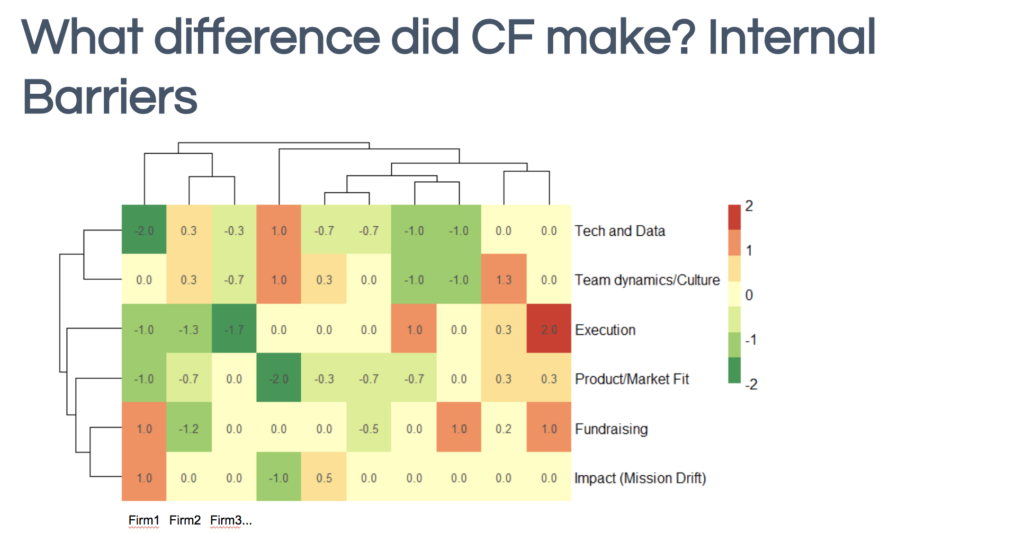
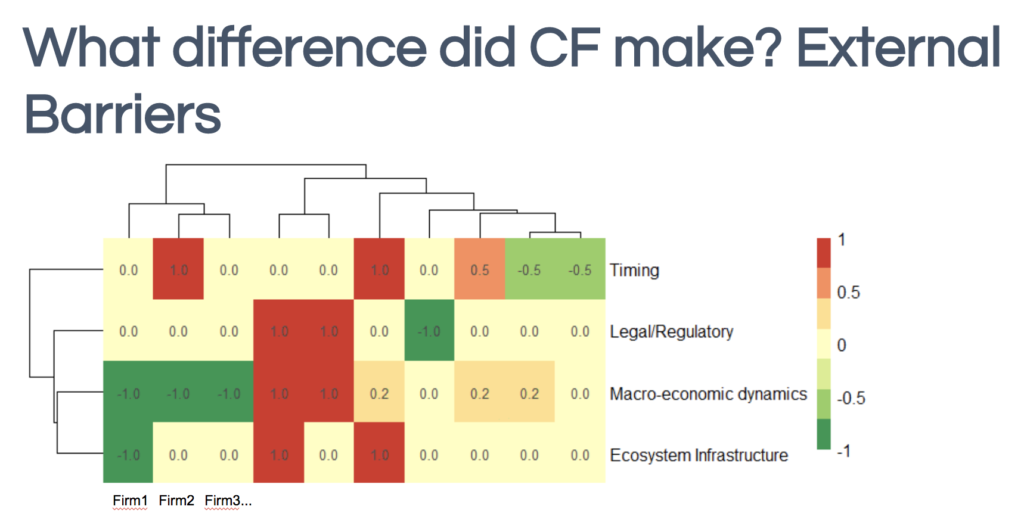
Overall, while not all risks are avoidable, you can’t avoid the risks you don’t know about or aren’t focused on. So for fintech startups and investors alike, identifying and mitigating risks early is key to success. To get started on identifying your fintech startup’s key risks and think of your mitigation plan, check out Catalyst Fund’s new risk diagnostic.
You can also check out our Derisking your Fintech Startup webinar here.
